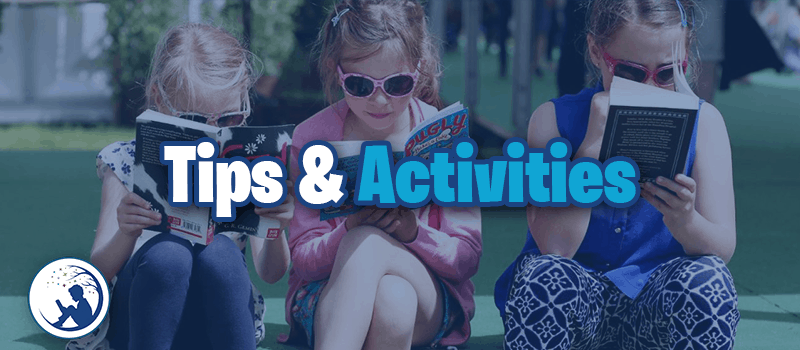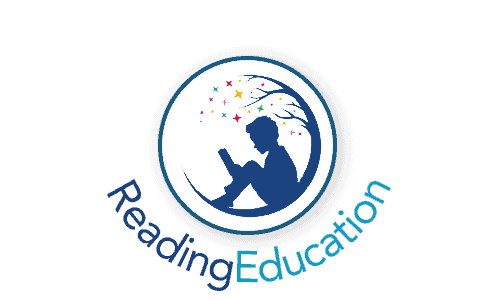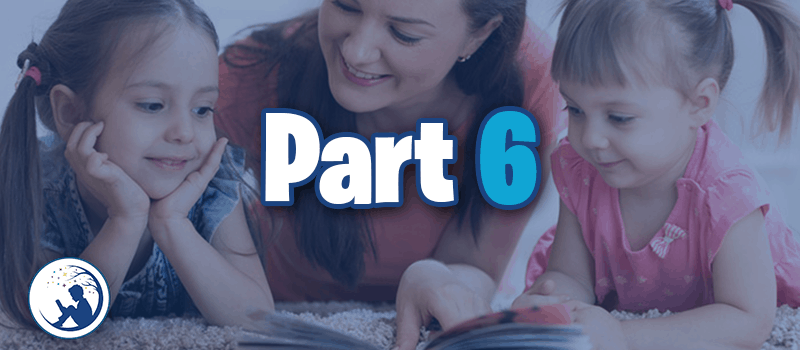Welcome to the sixth part of our ‘Teaching Your Child to Read Year-by-year’ series! In this set of articles, we’ll be looking at what your child will be learning at nursery or school and what you can do to further their reading skills at home. We’ll focus on eight age groups, which are as follows: Ages 3-4 years; ages 4-5 years, ages 5-6 years; ages 6-7; ages 7-8; ages 8-9; ages 9-10; ages 10-11. There will be one dedicated article for each age group, as well as links to all the other articles in this series to make navigation between articles as straightforward as possible (see the bottom of this page for links to other articles in this series).
Learning to Read: Children Aged 8-9 Years Old
At this stage of school, your child will be building ever-increasing fluency and confidence when reading. The primary focus will now be on developing reading comprehension, but it is still essential that children utilise their phonics skills to tackle unfamiliar and new words.
What will your child be learning at school?
Learning about root words, suffixes, and prefixes. In preceding years, your child will have started to learn about suffixes (a set of letter added to the end of a word. For example, ness creates a noun. Happy turns into happiness); however, once they reach this stage of learning, they will be introduced to both root words and prefixes. The former – root words – are words that stand on their own with the need for either prefixes or suffixes; the latter – prefixes – are a set of letters added to the start of a word to make a new word. For example, ‘clean’ becomes ‘unclean’, with ‘clean’ being the root word. Your child will utilise their understanding of suffix, prefixes, and root words to help them figure out the meaning of words and how meanings change when suffixes and prefixes are added.
Reading and studying a wide range of books and retelling stories. By this age, your child will have read and listened to numerous different types of books, including, but not limited to stories, myths, legends, and fairy tales, and will often know them by heart. Retelling these stories and tales will not only help your child to learn about the language used in stories but lay a fundamental foundation for public speaking skills, which will be vital as they get older.
Performing play scripts and poems. It is at this stage of learning that your child will be introduced to play scripts and poetry, and will often be given the opportunity to perform in front of an audience. Doing this will help your child to develop further understanding of the text as well as learning how to read out loud with expression.
Discussing words and phrases they find interesting. Your child will be encouraged to discuss the language used in the various books they read, exploring why the authors have chosen specific words and thinking about why certain words and phrases work well. Doing this will help your child develop their understanding of the books and texts they have read, and will aid their creative writing skills too.
Reading between the lines. At times, information in a book or text is clear and easily understood. However, many texts are typically a little more complicated and require some degree of inference to grasp what is being said. ‘Inference’ is when the author of a book leaves the reader to read between the lines to obtain some elements of information. Your child will need to make sense of details that aren’t explicitly stated. For example, instead of the text saying simply ‘It was raining’, it might say, ‘Michale shook the water from his brolly and carefully placed her soaking raincoat on the radiator’. Being able to read between the lines and make inferences is a vital skill for comprehension at this stage of learning.
Predicting what happens next. Your child will be asked to make predictions about the book, stories, and texts they read. This could involve predicting what will happen next or what a certain character might do or say. The reason for asking a child to do this is because it helps the teacher check their understanding of what is happening in the text.
Starting to use a dictionary to look up the meaning of words. Your child will not only be introduced to dictionaries but also asked to use them to check the meaning of words they’ve read.
Reading Tips & Activities for 8-9 Year Olds

Let’s take a look at several ways you can help your child further their reading skills and abilities.
1. Listen To Your Child Read…But Still Read To Them Too!
By the age of eight or nine, your child might have a preference for independent reading. However, as tempting as it might be to leave them to read by themselves, listening to them read is undoubtedly still worthwhile and still has many potential benefits, such as helping them to tackle new words and checking they understand the text. Reading to them is still very beneficial also, as it will allow them to hear new words and phrases that they themselves may not be able to read yet. Plus, you get to spend some quality time together!
2. Your Child’s Choices Should Be Valued
When your child chooses books, it is crucial that you value the choices they make – even if, in your opinion, the book looks either too difficult or too easy. It is very common for children to choose books that appear too difficult for them, particularly if they have a keen interest in the story or topic. If your child opts for a book that is beyond their current abilities, it is highly likely that you’ll need to be there to guide them through the book, be that to help with words, language, ideas or structure. By this age, children will have a strong enough vocabulary and word-reading skills to enable them to read most of the books they choose, but that won’t always mean they’ll understand the text.
3. Expand Their Reading Horizons
Now is the time to help your child diversify their reading choices. Encourage them to choose different genres or types of books, as well as magazines, websites, apps, and all other forms of text. Show your child that reading can help them to learn more about their interests and hobbies, and introduce them to new books, magazines, websites etc. that will interest them and increase their hunger to read more.
4. Create A ‘Word Bookmark’
A ‘Word bookmark’ is used to write down any words your child doesn’t understand, be that when they’re reading independently or when you’re reading together, and they want to carry on rather than stopping to discuss the word(s) in question. Once you’ve finished reading, you can look the words up in a dictionary with your child and talk about their meaning(s) and how they might be used in a sentence.
5. Reading Should Have A Purpose
Although your child will be reading for pleasure, by this point in their school life, they will be reading for specific purposes. They will read to discover information, to learn about a particular topic or sub-topic, or to answer questions about something. Practising ‘reading for purpose’ can be beneficial for overall academic performance and success at school.
As part of their homework, your child may be asked to research a specific topic or find answers to questions set by their teacher in class. You can assist them with their investigations but discussing with them where they can find relevant information, e.g. specific books, the internet etc. However, it is important to be aware that some children can struggle when overloaded with information, so be at hand to help them sift through the information if need be!
6. Never Give Up!
As your child gets older, they will encounter more and more challenging books and texts which they may struggle with. If they are struggling and are reluctant to carry on reading, be on hand to help them power through. You can do this by reading through parts of the text they’re having issues with and helping them to pronounce and understand words they’re unfamiliar with. Finding a balance between valuing their choice of book(s) and sensitivity is key!
Thank you for taking the time to read our blog; we really appreciate your time and hope you found this article informative and helpful. If you’re interested in reading the other posts in the ‘Teaching Your Child To Read Year-By-Year’ series, please use the links below:
Part 1 (Ages 3-4)
Part 2 (Ages 4-5)
Part 3 (Ages 5-6)
Part 4 (Ages 6-7)
Part 5 (Ages 7-8)
Part 7 (Ages 9-10)
Part 8 (Ages 10-11)
Thanks again for your time! If you have any comments, questions, or suggestions, please don’t hesitate to get in touch!

